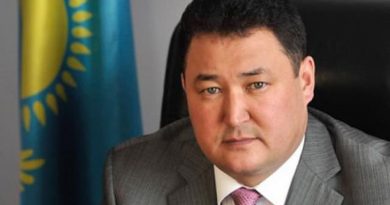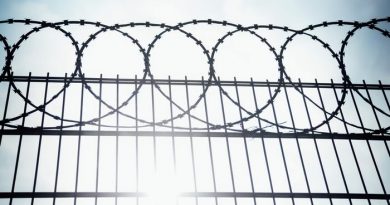Kazakhstan: police forced students to sell drugs
The employees of the Anti-Drug Trafficking Department in the city of Almaty forced students to trade in drugs. This statement was made by the parents of the convicted students at a press conference in Almaty.
Five years have passed since a group of young people Mukanov, Akhmadov, Batyrkhanov, Leushin, Yelikpaev, Zhamalov, Pak, Abilkasymov were sentenced to long terms with confiscation of property for drug trafficking. However, the parents of the convicts don’t lose hope of seeking justice.
This was exactly what was discussed at the press conference held at Kazakhstan International Bureau for Human Rights.
“The investigation into this case began in 2015,” says the father of one of the convicts, Bakhytzhan Batyrkhanov. “The police followed our children during 7-8 months. At the same time, there is not a single video for this period on which our children do packing. What kind of evidence base can we talk about?”
In 2016, policemen of Almaty proudly reported that they had stopped the activities of a criminal group of students from prestigious universities of Switzerland, Russia and Kazakhstan who were distributing drugs via the Internet. They grew hemp using special equipment in the apartment. The sale of drugs on the territory of the republic was carried out using the electronic system “Qiwi-Wallet”.
“The criminal gang consisted of 8 people, aged from 20 to 25. Four of them are students of prestigious universities of Switzerland, Russia and Kazakhstan. In the course of operational-search activities, anti-drug trafficking officers established a rented apartment where members of the liquidated criminal group stored prepared drugs, as well as an office space equipped with greenhouse lamps, fans and electronic devices, where criminals cultivated cannabis. During the search, more than 20 kilograms of narcotic drugs were seized, including 18 kilograms of hashish, as well as a red powdery substance, presumably related to one of the types of synthetic drugs,” the press service of the police of Almaty said at the time.
Later, at the trial, it was stated that drug trafficking students were able to sell more than 11 thousand doses of hashish and hemp for a year for a total of about $ 235,000.
“There is no evidence!” says Bakhytzhan Batyrkhanov.
The parents of the convicts paid special attention to one curious fact. By the way, it was mentioned in the court’s decision on this case.
“The defendant Mukanov M.A. has testified that he fully admits guilt in the accusation. Also, he doesn’t challenge the evidence, agrees with the qualification of his actions, repents of what he has done, and also regrets that he attracted his friends to the sale of narcotic drugs. However, he believes that he was in fact an accomplice, and not the organizer of the crime, because he received instructions for implementation from the employees of the Anti-Drug Trafficking Department, who themselves were engaged in the supply of drugs, which he resold to his friends. He received 10-15 % of the total resale through complicity,” the court’s decision says.
However, Mukanov’s statements, despite the fact that they were included in the final version of the verdict, for some reason were not taken into account by the court.
“About 40 people were involved in this case at the very beginning,” says Stalina Pak, the mother of one of the convicts. “Of these, only 8 people were selectively sentenced, and they were our children. I think that the trial was held not within the framework of the law, with an accusatory bias. Our children are taking the rap for someone else.”
“From the very beginning, the judge sided with the prosecution and didn’t satisfy the petitions of our lawyers. Then, he said that there would be no debate, because he already understood everything. It was a natural trial,” sighs Bakhytzhan Batyrkhanov. “We are sure that the supplies were made by the staff of the Anti-Drug Trafficking Department. But nobody pays attention to our words. Nobody is interested in this. Nobody wants to investigate this. Naturally, the police cover their own.
“The main organizer (Mukanov) had a cell phone on which there were the names of these police officers,” says Stalina Pak. “At the trial he asked to check his phone and see these names.”
“However, the judge didn’t take this into account. They simply said that the delivery was carried out by unidentified persons, and that’s all,” Bakhytzhan Batyrkhanov is indignant. “You know how this is done when it comes to internal affairs officers.”
“The post-conviction review of one of the defendants gave us hope for the triumph of justice, but it turned out that it was not so,” Stalina Pak burst into tears at the press conference. “We cannot protect our family and friends from unfair sentences. The court makes judgments based on its view. After numerous appeals to all instances, where we were denied everywhere, we have to appeal to the head of state as well, “Dear Mr. President, we ask you to take control of the case of our children, who were given 16 years in prison. We also ask you to enable the lawyers to defend their clients! Let justice prevail in this matter!”




